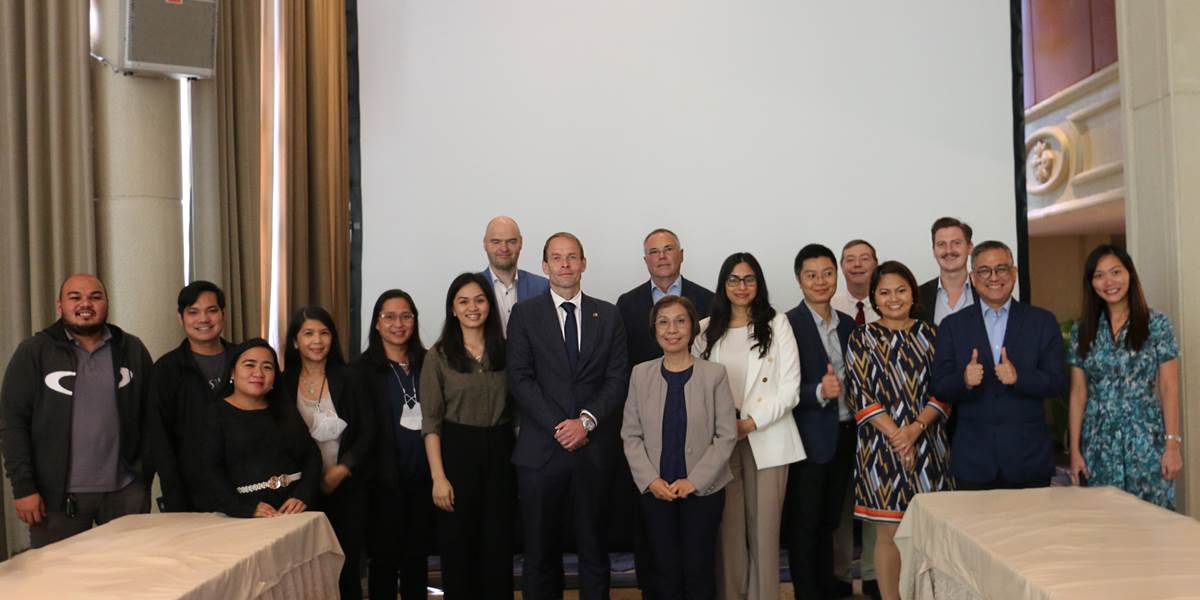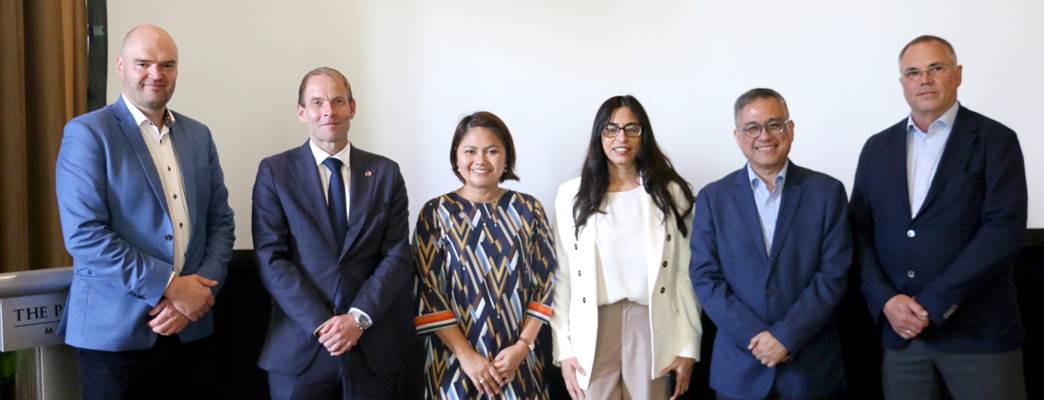Earlier this year, DENR issued the implementing rules and regulation (IRR) of the Extended Producer Responsibility (EPR) Act of 2022 where large scale companies are required for proper and effective recovery, treatment, recycling, or disposal of their products.
The World Bank Report in 2021 shared that the Philippines produces an estimated number of around 3 million tonnes of plastics end up in the oceans each year, with single-use sachets contributing to 52% of the total waste.
The introduction of DRS can boost the circular economy of the Philippines, where consumers can refund deposit from plastic products upon the return of its packaging at an accessible collection point. DRS is an effective tool to influence consumer behavior towards solid waste management by incentivizing the return of beverage bottles. This system helps prevent bottles and cans from ending up in oceans, streets, and landfills by providing economic incentives to consumers when containers are returned for reuse or recycling.
The workshop brings in the success stories and solutions from Norway, Germany, Australia, and Estonia, as examples of the world’s highest-performing DRS mechanisms for the EPR policy. DRS have proved to reduce the amount of plastic pollution, specifically on beverage containers, in regions where it has been successfully implemented.
High-performing DRS can significantly accelerate the circularity of beverage containers like plastic bottles and aluminum cans with high recovery rates. Within EPR, producers are incentivized to rethink the design of their products to achieve sustainable resource management.
Norwegian Ambassador to the Philippines Christian Halaas Lyster opens the forum by sharing important role of the DRS in improving the index of the Philippines in circular economy. “Norway was one of the first countries in the world to establish this kind of scheme back in 1902, and the introduction of the reverse vending machines in the 70s,” said ambassador Lyster.
Today, Norway records one of the highest total recycling return rate of 92.3% in 2021 (for both cans and plastic bottles) and is expected to reach a collection rate of 93% over the coming years.
“Norwegian technology and solutions can assist the Philippines in achieving its national and international commitments towards waste reduction, marine litter prevention, and carbon emission savings,” said the Norwegian Ambassador. “This will propel the country towards sustainable development and post-pandemic green recovery,” he added.
The panel was joined by esteemed experts from World Wildlife Fun (WWF), Reclay Group Managing Director Dr Fritz Flanderka, TOMRA VP Public Affairs - Head of Asia Annupa Ahi, Reloop Director Robert Kelman and Earth Care Consulting, Partner and Consultant Rauno Raal.
The workshop facilitated an in-depth discussion of the current state of EPR in the Philippines, EPR best practices, designing EPR policies with policy framework considerations, and how the Philippines can adapt these policies to address plastic pollution, increase recycling, and move away from linear take-make-dispose models.

“With the enactment of the EPR act of 2022, the Phillipines have taken a significant step towards the implementation of modern waste management. This must now be consistently implemented and further developed. In this context, DRS is an effective approach to closing recycling loops,” mentioned Dr. Fritz Landerka, Managing Director of Reclay Group.
DRS creates a closed and clean loop to have higher quality materials. DRS is not only having high collection rates but also provides clean materials for recycling. Without contamination, containers can be most efficiently recycled into new bottles and cans. In this way, DRS provides the beverage industry, who struggle to manufacture containers with more recycled content due to a lack of high-quality, food-grade material, with optimal resources for the re-production of containers. In fact, the higher the collection rate, the higher the quality of the materials in the loop, meaning the more times that material can be used in new containers. For every 100 virgin bottles produced, a DRS with a 90% collection rate makes it possible to produce a total of 208 bottles! In Germany, collection rate stands at 98%.
“The business model of DRS does not rely in any way on financial support from government nor does it solely rely on the beverage industry,” according to Partner at Earth Care Consulting, Rauno Raal. DRS is a unique solution, where in addition to industry fee its revenues include unredeemed deposits and material sales to operate the system. DRS finances are truly innovative as utilizing collected materials sales revenue and non-environmentally friendly consumers behavior (in manner of created unredeemed deposits) to cover its costs.
“It is heartening to see the intentions and work initiated by the Philippines government towards implementing serious and effective solutions for waste management. The government essentially will play a strong role in laying a robust framework by way of policies and mandates. Companies like TOMRA are willing to support these solutions with the technical solutions, making them robust, reportable and sustainable,” concluded Vice President and Head of Public Affairs Asia from TOMRA Annupa Ahi.
